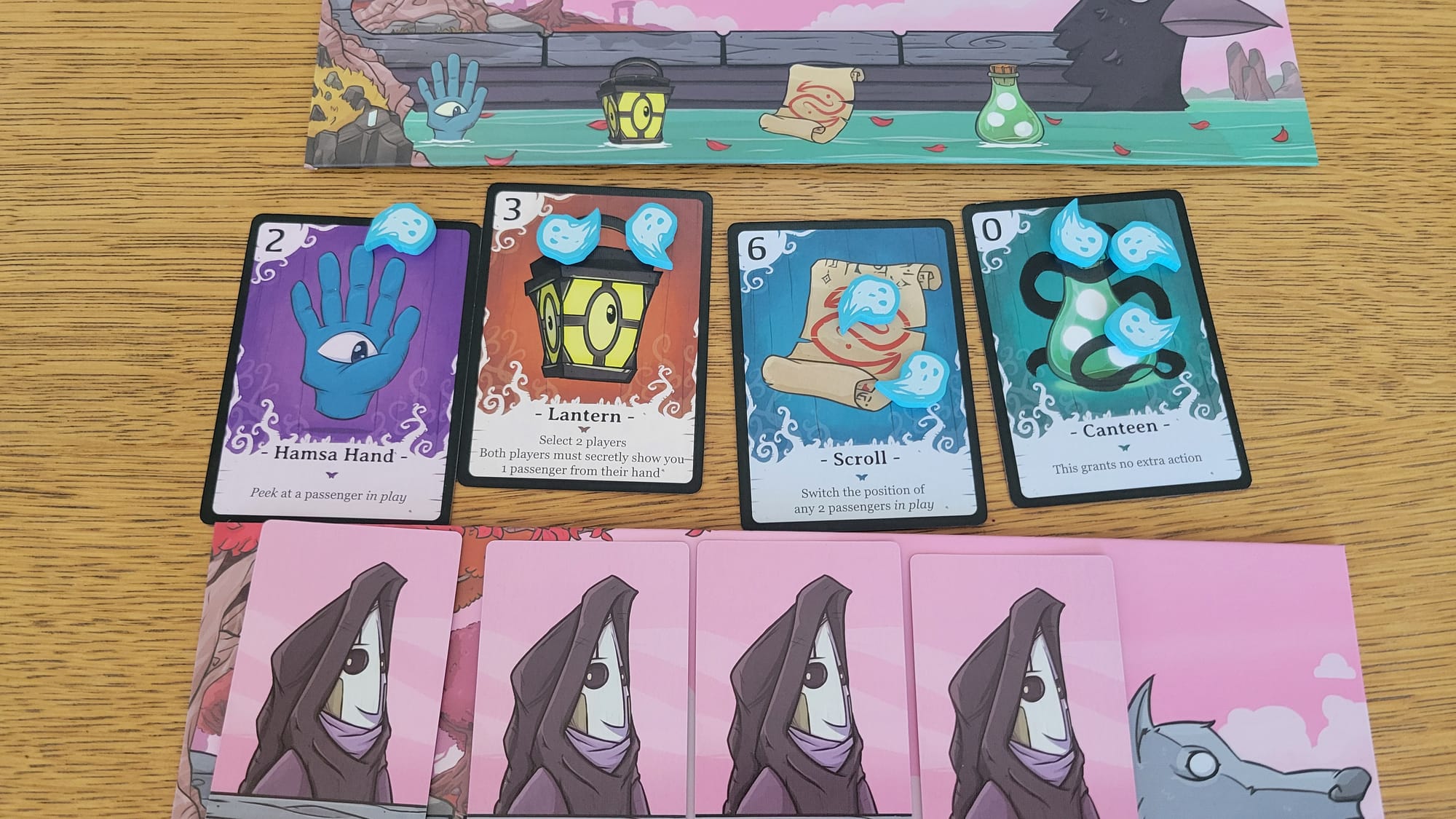Social deduction is one of those genres that is just inherently fun and understandable. The foundation of a large group playing cooperatively while a smaller group tries to accomplish a diametrically opposed goal is simple and compelling in a way that additional complexity threatens to undermine. Avalon and Secret Hitler are prime examples: every round, the table elects a team that will advance the game state towards the good or bad side winning. Both games have additional layers on top, but they're minimal enough that they can be completely explained quickly. That’s not to say they're without their faults, as optimal play tends towards isolating unproven players off the team after the first couple rounds, leaving most of the table not able to directly interact with a core mechanic.

Passengers approaches the genre from a new direction that avoids the pitfalls of other titles. In theory, it's pretty simple, with all players being dealt a soul, a demon, and a third card from a mixed deck that determines their allegiance, which they then take turns playing cards facedown into positions in one of the round's two boats and grabbing the appropriate power and number of votes. Once everyone's played a card, everyone uses the power they picked up and the table votes on which boat moves on to the scoring area, with demons trying to score demons and soul guides trying to score souls. After three rounds, the game's over. Easy peasy.

Except that I omitted the next layer, the secret pattern building game. Every card is one of three colors, with the two teams scoring a chunk of additional points based on their particular preferences. This is where the game gets really opaque, because there's no way to communicate what color you're playing to only your team. The result is everyone has access to cards that benefit both sides both as a faction and color score, but little means of determining what anyone actually played until the game's already over, leaving players in a state of confusion. I suspect that a dedicated group could develop a meta to pierce the veil, but the wonderful production couldn't overcome that bad first play impression, and I struggled to table it enough to get the requisite plays in to give a review, let alone figure out a way to parse the unknown. I also left out the neutral third party role someone gets stuck with in an even player count game, which does stick to the tradition for those roles in that I'd just suggest sticking to odd numbers if you do pick up Passengers.
Passengers
Bad
There might be a group out there that gloms onto Passengers’ unique pattern building-based take on social deduction, but I don't know them personally.
Pros
- Nice production between the art and wooden vote tokens
- Players get to choose what form of influence they want over the game, choosing amount of votes and special power every round
Cons
- An excess of layers on top of the genre’s core idea makes the game too obscure to be enjoyable
This review is based on a retail copy provided by the publisher.





















